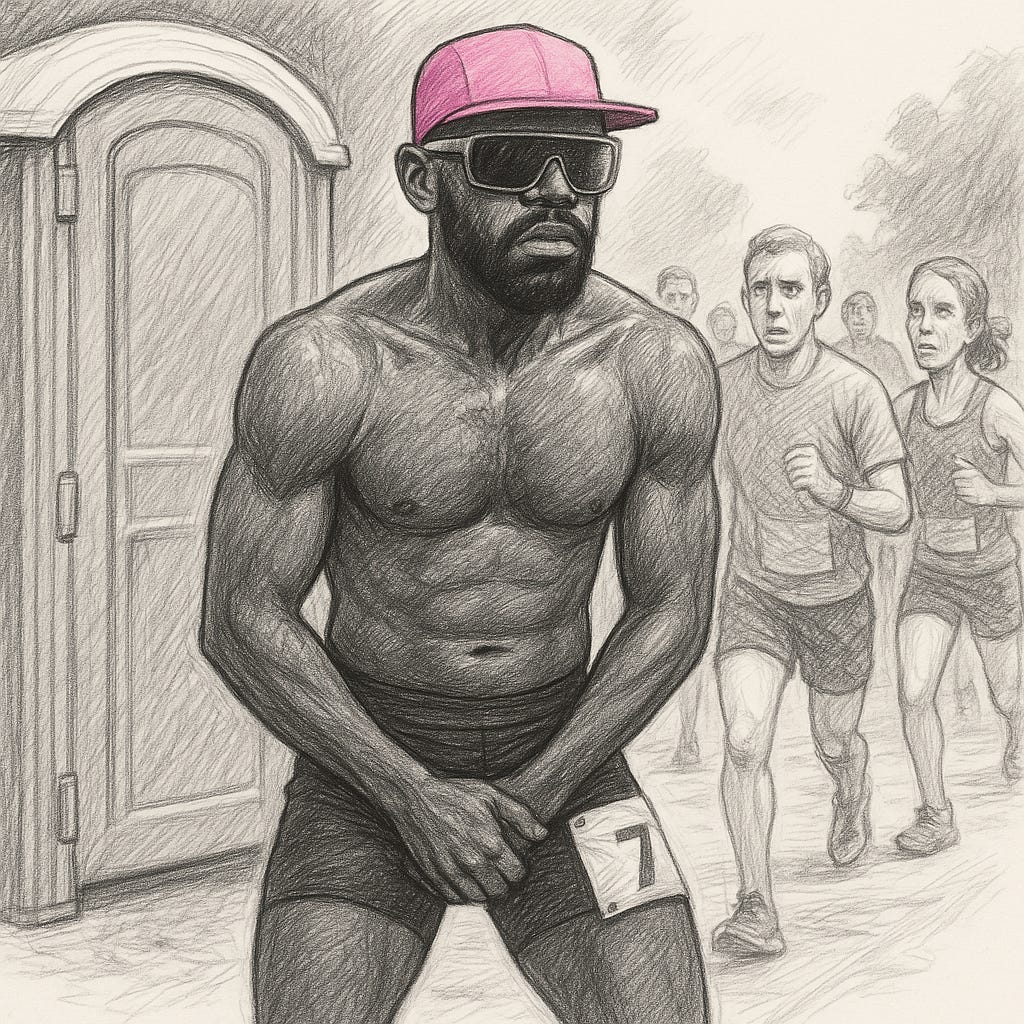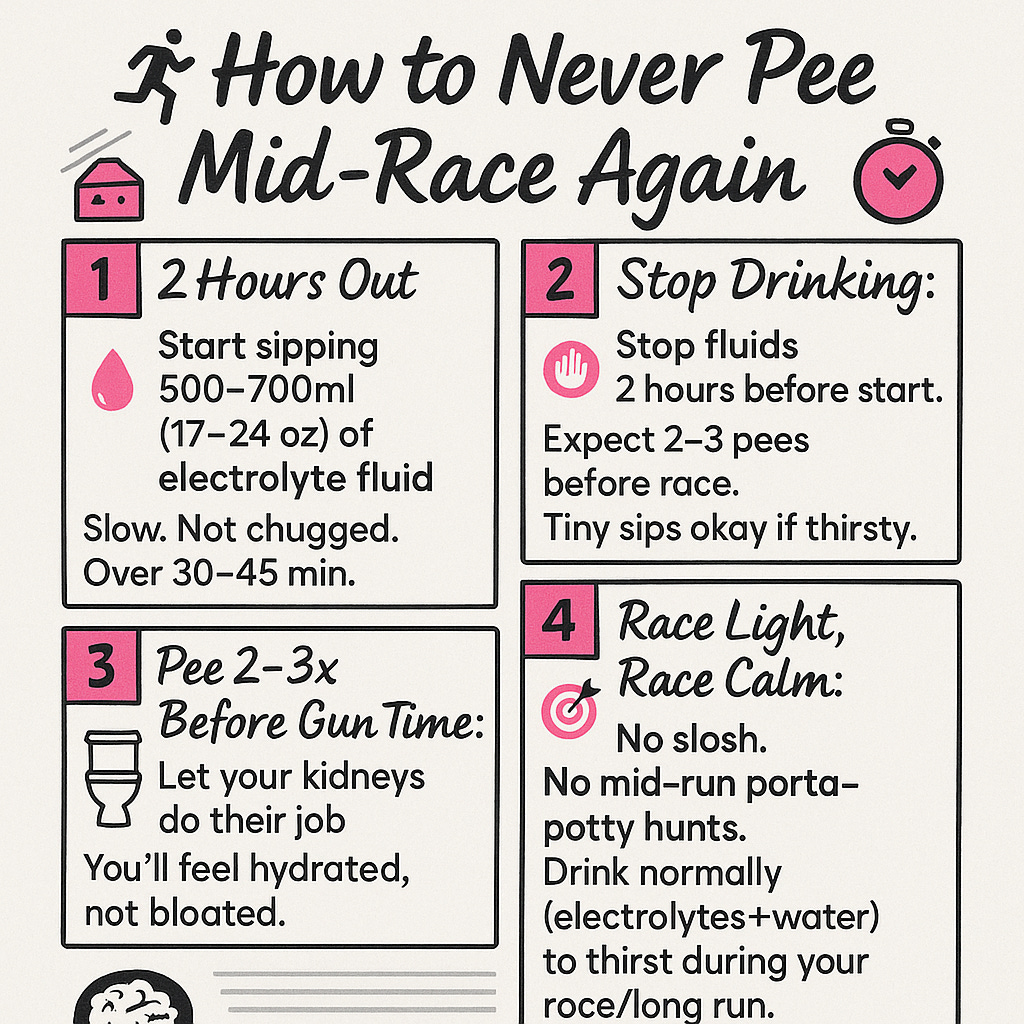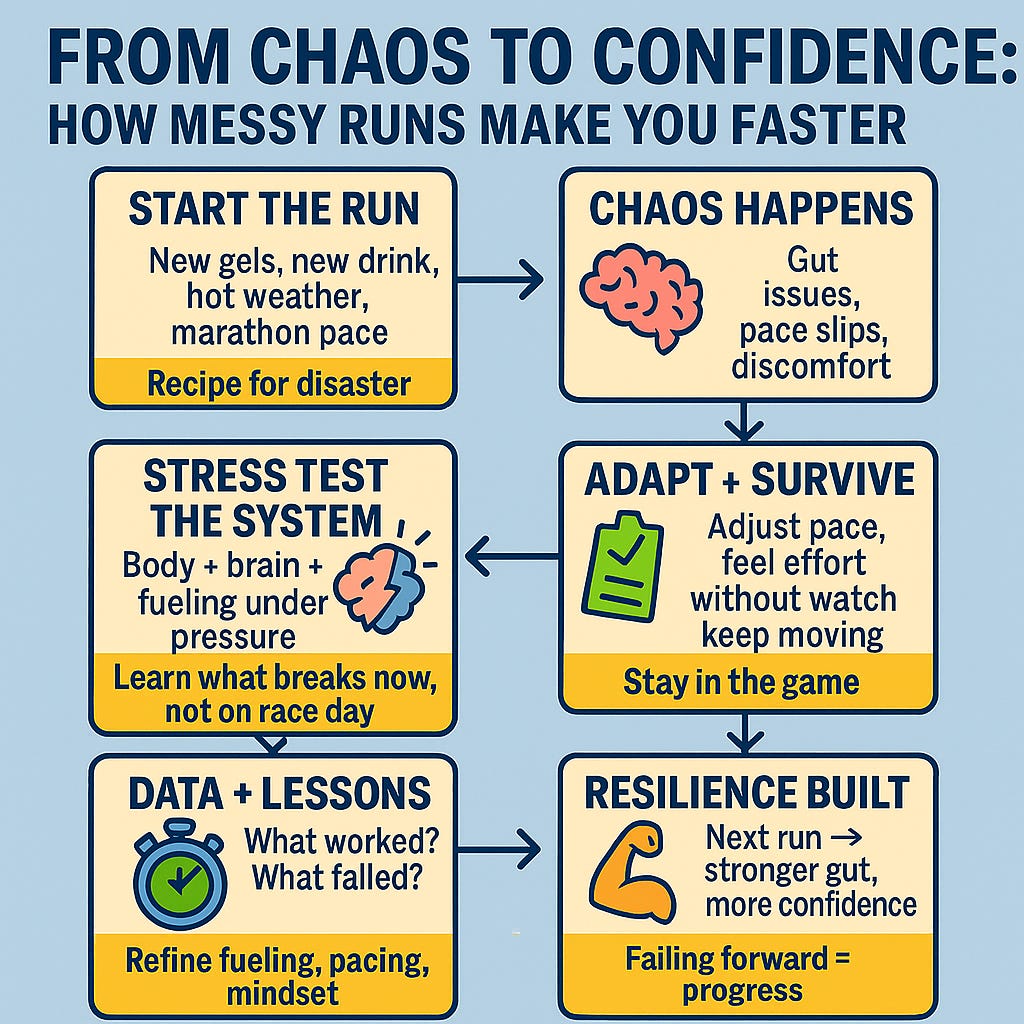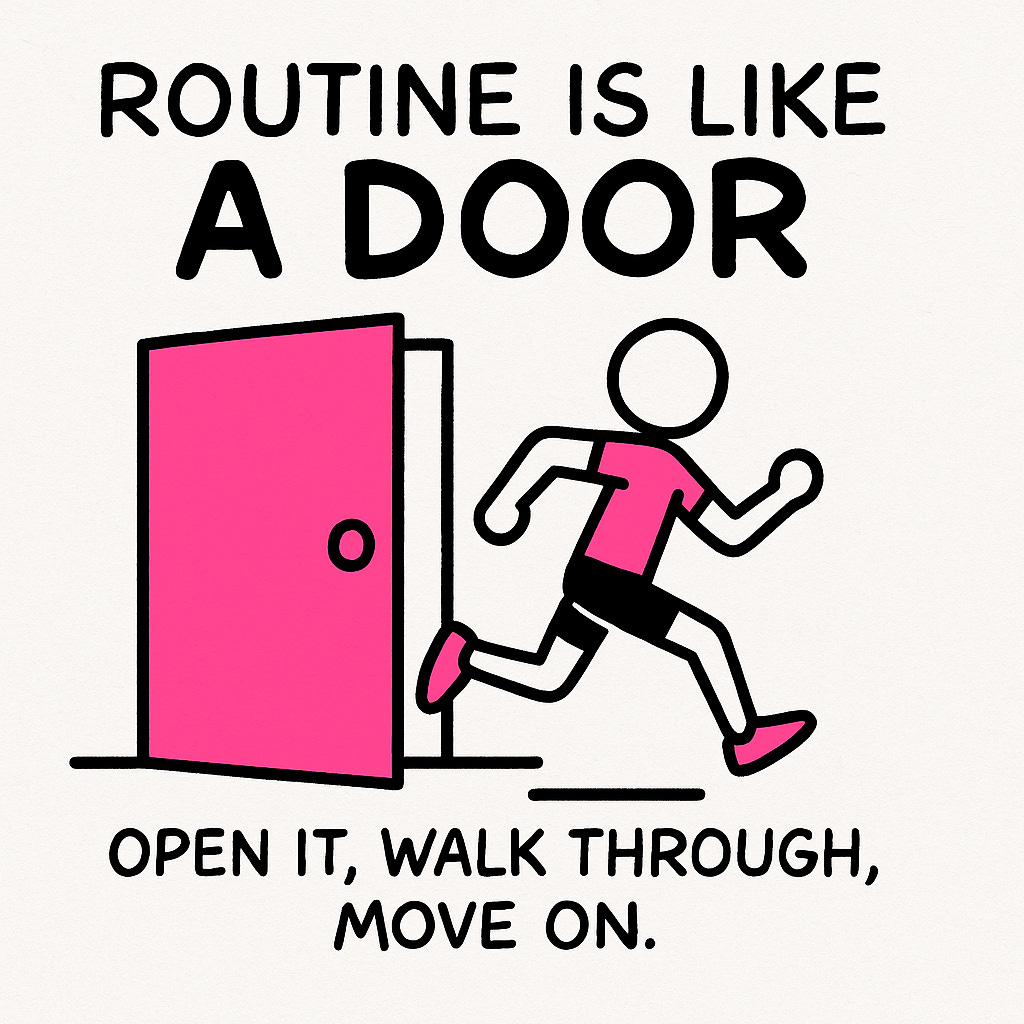How to Time Your Fluids So You Never Pee Mid-Race/Long Run
Long Run Fails + Morning Routines Aren't That Important
CliffsNotes for Runners
🚽 How to Time Your Fluids So You Never Pee Mid-Race Again
🥹 Why Morning Routines Aren’t That Important
🚽How to Time Your Fluids So You Never Pee Mid-Race Again
I used to be a mid-run-pee type of runner. And even worse, I was a just-before-the-start-line-pee-and-panic type endurance athlete. I have a very clear memory of running my first half marathon in early 2007, frantically scanning for a tree or praying that the porta-potty line would move faster.
You’ve probably met that guy/gal. You may be that guy/gal. Either way, this is for that person because I wish I had this guide 15 years ago.
The Pre-Race Bathroom Game Sucks
There’s nothing heroic about needing to stop on a long run just to relieve yourself behind a bush. It’s not just a logistical problem—it breaks the rhythm, messes with your head, is usually an awkward/grey area, and will definitely slow down your finish time. You don’t realize how much it matters until you lose three minutes or more all because your bladder was louder than your pre-race hydration strategy.
My Accidental Hydration “System”
I stumbled onto this while trying to solve two problems at once:
How do I ensure I'm hydrated enough to perform at my best?
How do I not feel like I need to pee ten minutes before the start, or worse, halfway through my main race that I’ve been training most of the year for?
So… as I always do, I consulted an expert (Jordan Kain, who is also my dietitian). We were doing a general maintenance check on everything. I was nailing most of the stuff, but she randomly asked, “How’s your pre-race fueling and hydration?”. I was like… “Actually… It’s terrible! I have to go to the toilet like 4-5 times before a race and sometimes during. It’s the worst”.
She then gave me a few tips on solid food, but also included a random throw-away line about hydration and timing. I’d never really heard it anywhere, but I researched it, and lo and behold, she was right.
💩Bonus: With this hydration strategy, you also might unlock that pre-race poo (or two) because you have hydrated slowly over time.
Why It Works: Science-y But Still Cool
Turns out I wasn’t reinventing the wheel. I was accidentally doing what NASA does with astronauts. Before spaceflight, they do “prelaunch fluid loading” by drinking 16–32 oz (470- 950ml) of electrolyte-filled fluid two hours before takeoff so they don’t pass out in microgravity.
There are also guidelines from the American College of Sports Medicine (ACSM), the National Athletic Trainers' Association (NATA), and the British Heart Foundation (BHF) that support this approach.
If you chug cold water (at least drink room tempo or slightly warm water) right before your warm-up jog, your body’s like: “Cool, let me either get this out of you in the next 10-20 minutes or hold this until halfway through your race. Hope you’re cool with that.”
How To Do It: It’s Not Sexy, But It Works
It’s pretty easy — You just sip slowly. Think of a handful if you were at a pond or lake. About 30-60ml (1-2 ounces for the metrically sensitive) every few minutes. Just keep the bottle on you and use a straw to stop chugging tendencies.
Early morning race? Yes, that means you have to wake up three, if not four, hours before your race to start hydrating and eating solid foods. But start eating and drinking immediately upon waking up. Practicing this a few times before your race day can help you manage the discomfort. It’s only a few times a year you have to do this, so it might be worth the temporary suffering to run a best time that lasts forever!
Then stop drinking about two hours from the start time. If you’re feeling like you have a dry mouth, just sip a very small amount of plain water every 15-20 minutes until the start. In these two hours, you should go do a #1 about two or three times. Now you can start your race with the peace of mind that you won't have to worry about bathrooms, porta-potties, or whether you can hold it until the next aid station.
It’s a weird, unglamorous analog little trick. No supplements or crazy AI technology. Just a bottle, a clock, and a little faith in your kidneys.
🎯 This Long Run Didn’t Go to Plan… And That’s the Point
We planned everything… except for the part where it would all fall apart. And that’s where the magic happened.
Fuel Bombs & Pace Games: What Went Down
Brenton and I set out for a marathon prep run—32K of hard-earned miles, with a spicy fast finish. But we threw in some “extras”: new gels, an unfamiliar carb drink, and a no-watch pacing game to cap it off.
About halfway through, the cracks started to show. Brenton’s face turned from “focused pro” to “please stop talking to me, bruh.” His stomach was in open rebellion, and the sun was cooking us alive.
Perfect splits? Nope. Smooth finish? Not even close. However, the run delivered something we hadn’t planned for: a real-time stress test.
Want the full episode? Scroll it, stream it, sweat to it on your next run/workout. It’s all here for ya!
🥹 Why Morning Routines Aren’t That Important
Have you ever noticed how the loudest voices online are often the ones doing the least? The real pros? They're quietly stacking days, not followers.
There’s something weirdly comforting about these Steve Magness Instagram posts — like being told, “Hey, you’re not lazy, you’re just not into cosplay productivity.” (Which I think are excerpts or supplemental additions from his latest book)
We all know what it looks like. The four am ice bath, the biohacking stack, and the beautifully framed sunrise selfie before… doing nothing that really helps you go faster/longer.
But the real work? It’s quieter and I’d say even kinda boring. Putting your shoes on, doing the time on your feet on easy days when you kinda sorta don’t want to.
I’ve spent years trying on the costume of different morning routines like they were Nintendo cheat codes, thinking “oh hey world, you don’t know about this new thing… I’m gonna finally crack the code on productivity and life”. As it turns out, the only “hack” that worked wasn’t a hack — It was consistency.
Your routine shouldn’t be a performance, but instead it should be more like a door. Open it, walk through, and move on.
And if your routine takes longer than the actual run, you’ve missed the point.






